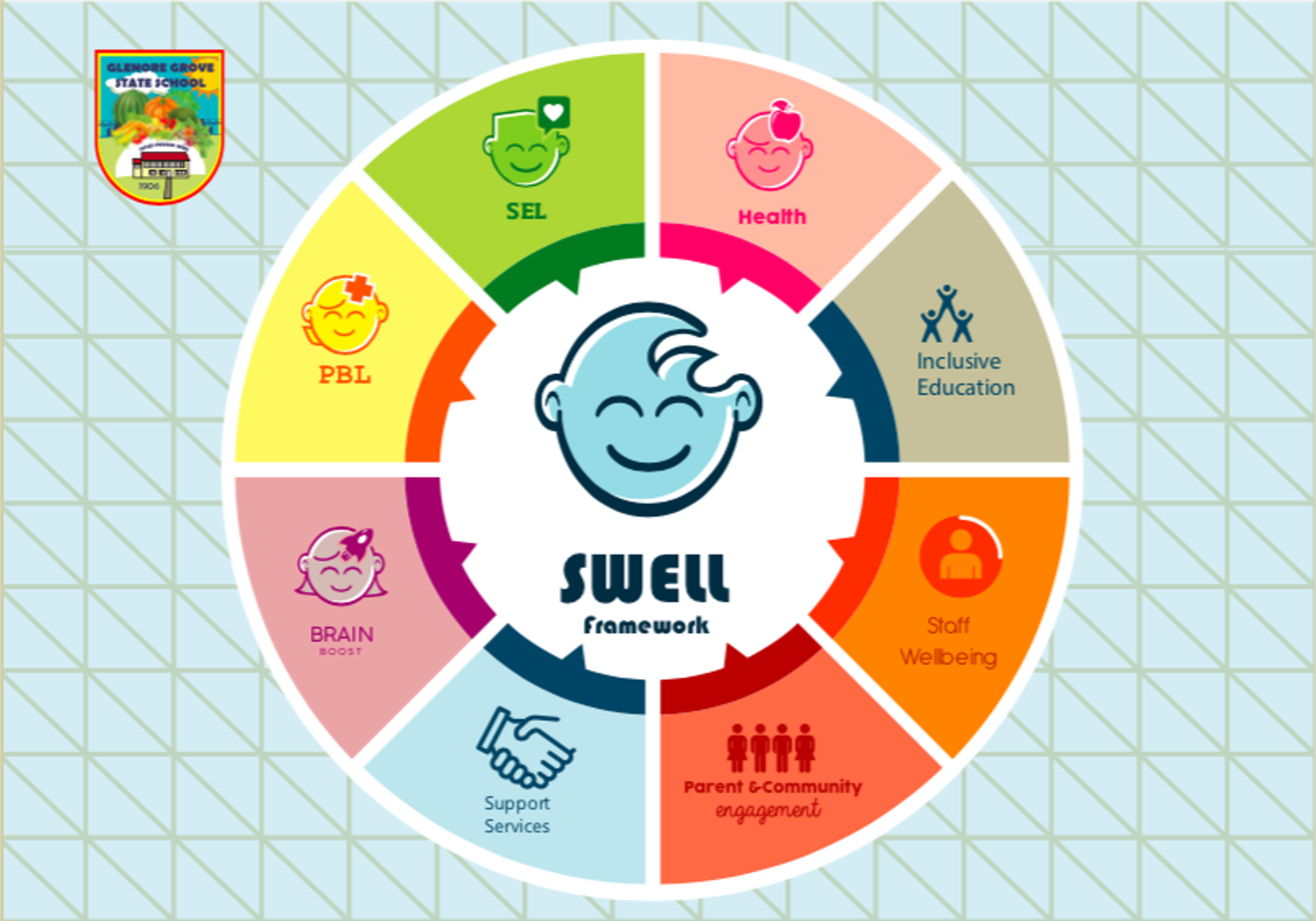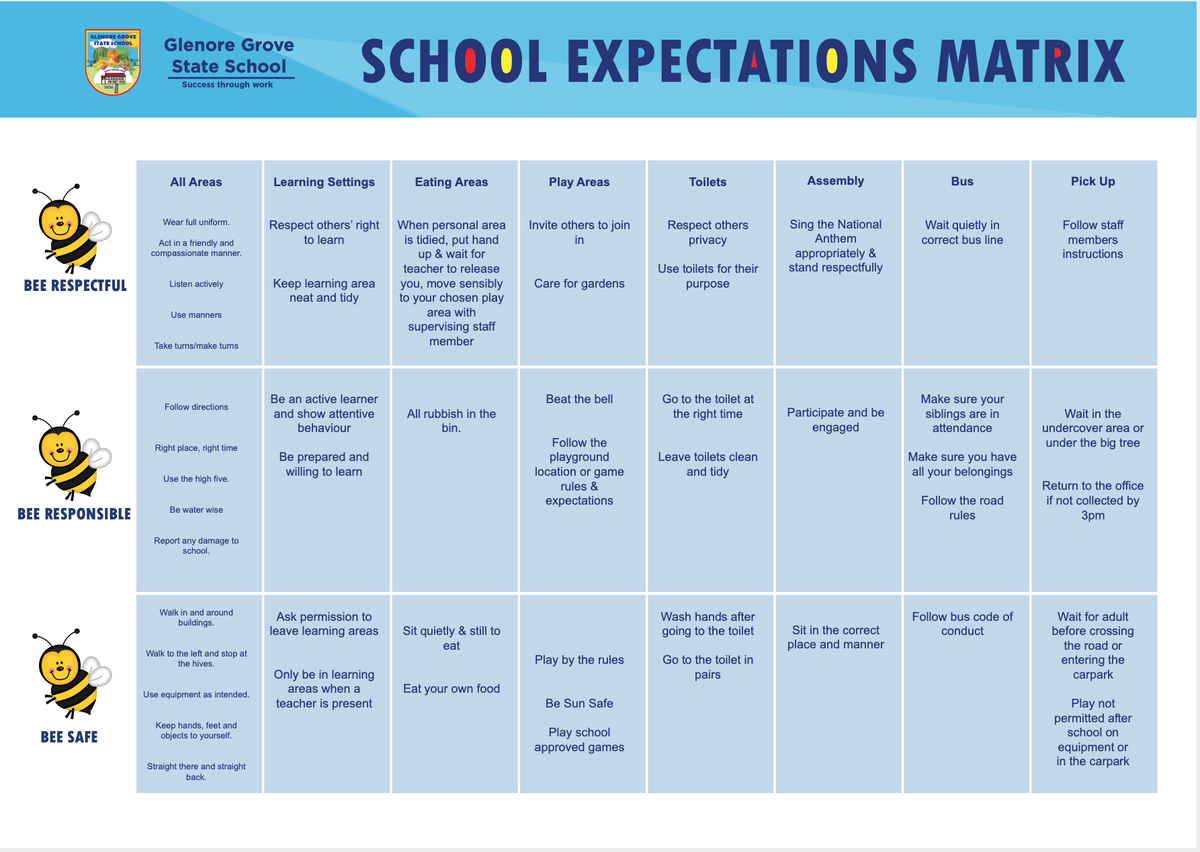Student Wellbeing for Engaging Literate Learners
GGSS kids are kind.

Student Wellbeing for Engaging Literate Learners
GGSS kids are kind.
Each week we focus on a lesson from our Behaviour Matrix.


Check out our YouTube page for movies on these lessons.
Wk 7 - Be Respectful - use toilets for their purpose & respect other's privacy
Wk 8 - Be Responsible - Use toilets at the right time & leave them clean & tidy
Wk 9 - Be Respectful - Playgrounds - invite others to join in & play school approved games
Joyful June
This month's theme is all about finding the joy in life, even when things are difficult. Research has shown that experiencing positive emotions in a 3-to-1 ratio with negative ones leads to a tipping point beyond which we naturally become more resilient to adversity. So let's train our brains to find the joy.


Did you know you could do this online course for free!
Triple P helps make raising children and teenagers easier and more enjoyable for both you and the kids. It’s about building relationships, communicating well and encouraging the kind of behaviour you want to see. It helps you manage your child’s behaviour, emotions and development in a way that isn’t hurtful.
Positive parenting helps you feel more confident and less stressed about raising children. You’re likely to have fewer arguments with your partner. And kids who grow up with positive parenting do well at school. They make friends easily. They feel good about themselves. They’re also less likely to have behavioural or emotional problems when they get older.
Like the sound of Triple P? Well, here’s just a little taste: five principles that underpin Triple P’s positive parenting. These principles are relevant whether you’ve got toddlers, teens or in-betweens!
Bored kids are likely to misbehave. Bored teenagers may find trouble. So create an environment that allows kids to explore safely and develop their skills.
If a child or teenager comes to you for help or a chat, they’re ready to learn. Give them positive attention, even if only for a minute or so. Encourage their ideas and opinions.
Set clear rules and boundaries and follow through with fair consequences. You can negotiate some of these with older kids and decide on the rules and consequences together. Praise little and big kids to encourage the behaviour you like.
Nobody’s perfect – kids, teenagers or adults – so don’t expect your child to do more (or less) than they’re capable of. And remember, we all make mistakes sometimes.
It’s all about balance. You’ve got to look after your own needs too, so make sure you’re getting some support, time with friends, and maybe even a little time to yourself!